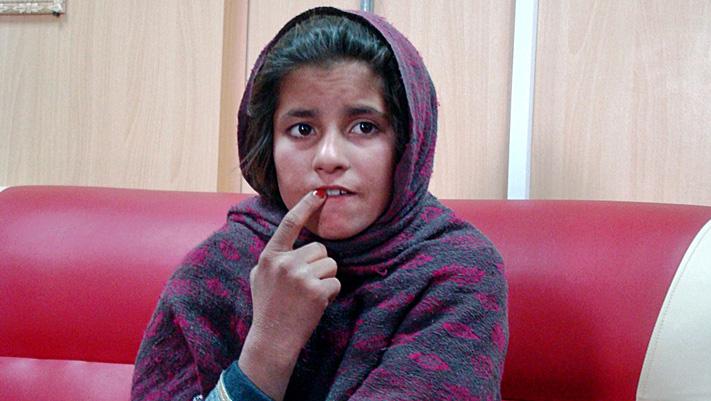A 9-year-old explains how she ended up wearing a suicide bomb vest in Afghanistan
An Afghan girl named Spozhmai is held in a border police station in the southeastern part of Helmand province, Afghanistan.
Spozhmai is just 9, and had never attended school when a guard found her wrapped in a bomb-laden suicide vest near a police checkpoint in Afghanistan last week. Her story is extraordinary.
"The first question I had in my head," says BBC correspondent Shaimaa Khalil, who interviewed her, "was how on Earth could someone that young get [her] hands on a suicide vest, let alone understand what it's for and go out and do something with it?"
Spozhmai told her what happened. The girl said her brother, who was a Taliban commander, had wrapped her in the explosive-packed vest, showed her how to use it and left her near a police checkpoint to detonate in the morning when police were around. She slept there and was found by a guard who took her to the authorities, where she is still being held. The Taliban have denied the alleged plot.
Khalil says Spozhmai told her she didn't have a mother and her stepmother didn't treat her well. She said she was never allowed to go to school. "I can't read a word and my brother told me that I'm here in this world and you will die. You're not here to learn or to do other things. You're here just to do the duty."
The BBC's Khalil says the authorities are negotiating with her family and tribal elders and that there is a possibility she might be sent home.
But if that happens, Spozhmai says she won't go. "Even if the government says they will guarantee my safety, I am not going back there. The same thing will happen again. They have told me before if you don't do it this time, we will make you do it again. And my father is here. He came here and told me to go back. And I said 'no, I will kill myself rather than go with you.'"
Khalil says, "You have to remember that, in this part of Afghanistan, Helmand, that it's extremely conservative and tribal and traditional. And for authorities to keep a hold of a young girl without her family's consent is very abnormal. It just doesn't happen. It's quite tragic to hear a small child say, 'I'd rather kill myself than go back home.' But this is why her future is in limbo."
Spozhmai has asked that Afghan President Hamid Karzai not send her back and instead put her in a "good place."
"Whether they'll take her on and follow her case and make sure nothing happens to her," says Khalil, "unfortunately, will be up to the authorities."
